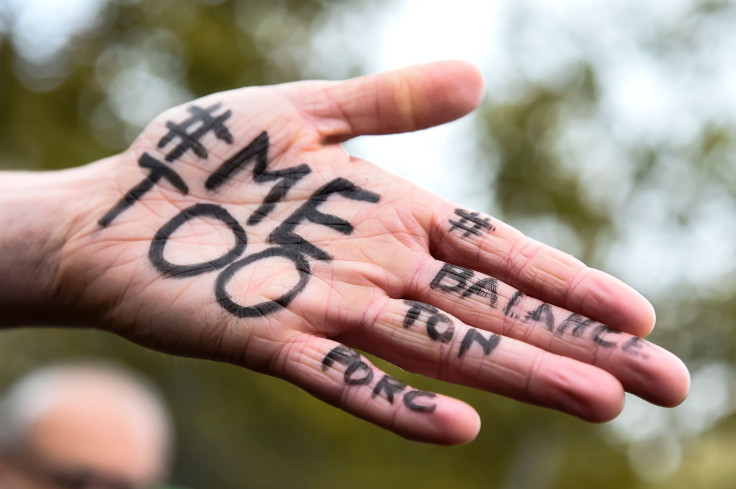Who Is Moira Donegan? Woman Behind ‘Shitty Media Men’ List Reveals Herself

Before Harper’s magazine or any other high profile magazine had the chance to reveal her identity, the woman behind the now viral “Shitty Men In Media” has stepped forward and identified herself — she is Moira Donegan.
In an exclusive biographical piece published on The Cut on Wednesday, Donegan revealed her identity for everyone to see, putting an end to the debate on whether a magazine revealing her name was against journalistic ethics.
“On October, I created a Google spreadsheet called ‘Shitty Media Men’ that collected a range of rumors and allegations of sexual misconduct, much of it violent, by men in magazines and publishing,” she said in the article.
“The anonymous, crowdsourced document was a first attempt at solving what has seemed like an intractable problem: how women can protect ourselves from sexual harassment and assault,” she added.
According to her Twitter profile, Donegan was a contributor for publications such as London Book Review, Bookforum Magazine, N+1 and Page Turner (a sub group of the New Yorker). Her social media page is filled with various opinions on feminist and women empowerment, with tweets such as these:
Donegan also participated in the #MeToo movement organized outside the Trump International Hotel in December. She described her experience of watching thousands of women of every race gather to demand the president’s resignation as something she thought was unlikely to happen.
“At the rally in Columbus Circle, protesters chanted for President Trump to resign: So far, 19 women have gone on the record to accuse him of sexual misconduct,” she wrote in a piece published on the London Book Review. “In the shadow of his brazen tower, penned off by a police fence, his resignation seemed just as unlikely as it had before October. This is one weakness of #MeToo: it only works on people who are capable of shame.”
Donegan explained why she created the list. “In the beginning, I only wanted to create a place for women to share their stories of harassment and assault without being needlessly discredited or judged. The hope was to create an alternate avenue to report this kind of behavior and warn others without fear of retaliation,” she wrote.
However, her hopes of keeping the list private and shielded from the public eye failed when Buzzfeed revealed the existence of the list in an article and the entire contents of the list was posted on Reddit. By the time Donegan proceeded to take the list down, after merely 12 hours of posting it online, it had already gone viral.
Donegan admitted that one of the biggest mistakes was underestimating the scale of sexual harassment prevalent in the media industry.
“I realized that the behavior of a few men I had wanted women to be warned about was far more common that I had ever imagined,” she said. “This is what shocked me about the spreadsheet: the realization of how badly it was needed, how much more common the experience of sexual harassment or assault is than the opportunity to speak about it.”
Although Donegan’s identity was under wraps till now, the list already started detrimentally affecting her life in a number of ways.
“In the weeks after the spreadsheet was exposed, my life changed dramatically. I lost friends: some who thought I had been overzealous, others who thought I had not been zealous enough,” she wrote. “I lost my job, too. The fear of being exposed, and of the harassment that will inevitably follow, has dominated my life since.”
However, it was a rumor that controversial author Katie Roiphe was about to publish her name in Harper’s Magazine’s March issue that finally drove Donegen to take the decision of stepping forth and revealing her identity.
Donegan said that Roiphe approached her in December to get a few quotes from her for a piece on “feminist movement” that she was writing on. Although she mentioned that the piece would be published on Harper’s, Roiphe withheld the fact that she knew that Donegan was the woman who started the “Shitty Men In Media” list.
Donegan came to know about Roiphe’s intention when an anonymous fact checker reached out to her. What followed was an outrage on social media — a campaign led by Journalists Dayna Tortorici and Nicole Cliffe. People started criticizing the Harper’s magazine and Roiphe for nor respecting Donegan’s privacy.
“People who opposed the decision by Harper’s speculated about what would happen to me as a result of being identified,” Donegan wrote.
“They feared that I would be threatened, stalked, raped, or killed. The outrage made it seem inevitable that my identity would be exposed even before the Roiphe piece ran. All of this was terrifying. I still don’t know what kind of future awaits me now that I’ve stopped hiding,” she added.
Twitter users reacted in an overwhelmingly supportive manner toward Donegan's decision to reveal her identity:
protect @MoiraDonegan at all costs ❤️
— rae (@RaeWitte) January 11, 2018
Courage. Thank you, @MoiraDonegan. https://t.co/J1Iheptabk
— Blair Braverman (@BlairBraverman) January 11, 2018
© Copyright IBTimes 2025. All rights reserved.






















